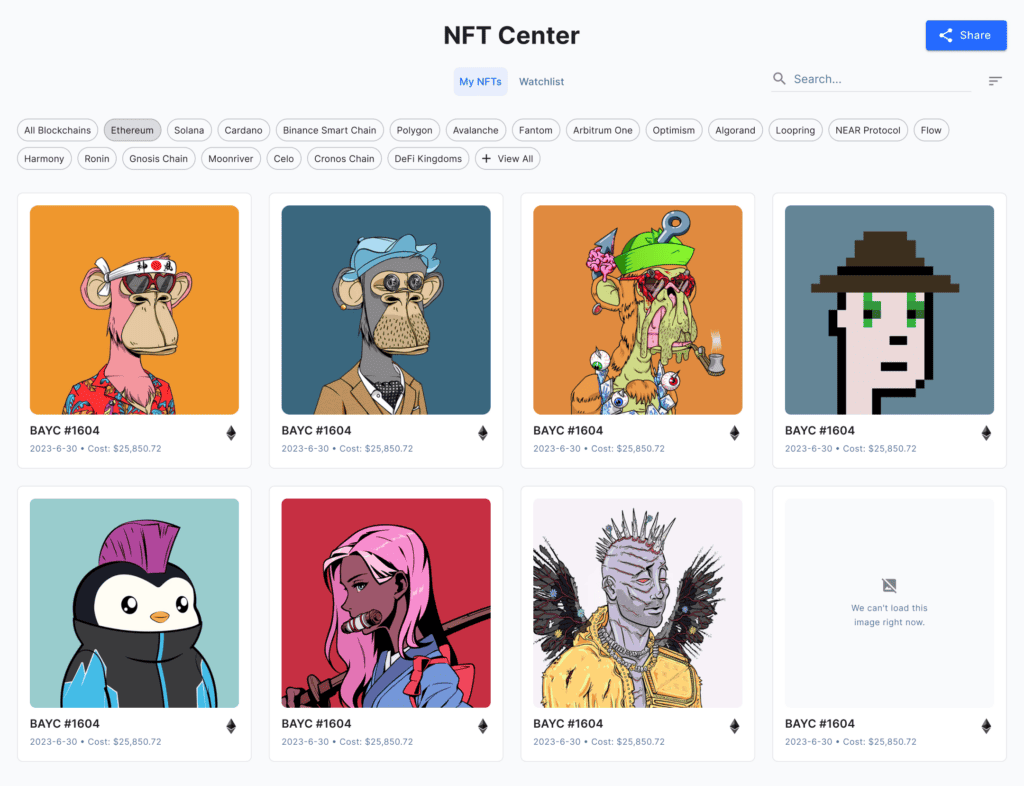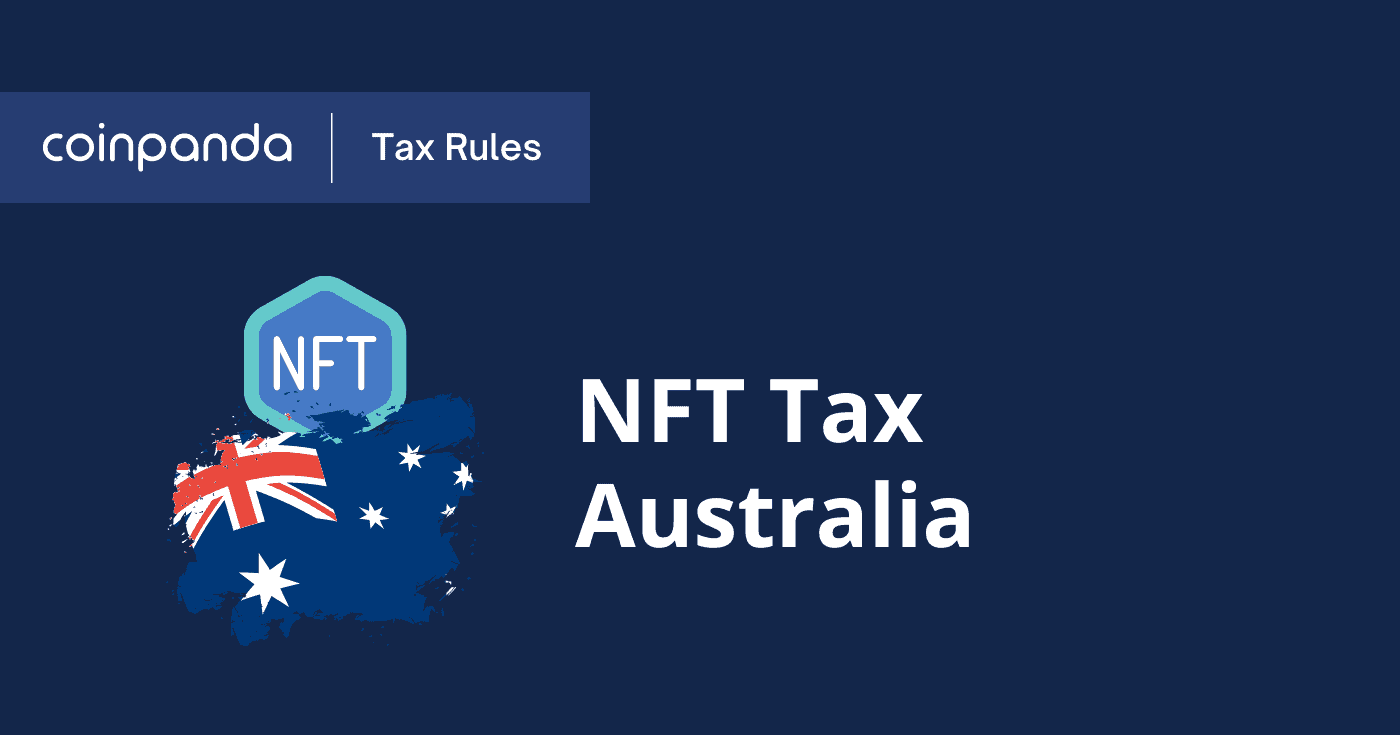Are you wondering if you must pay taxes on your NFT transactions in Australia? In this guide for NFT taxes in Australia, we will look at how NFTs are taxed by the Australian Taxation Office (ATO), how much tax you must pay, and how to report NFTs accurately when filing your taxes.
Key takeaways
- The ATO classifies NFTs as taxable assets, similar to cryptocurrencies, and you must pay income or capital gains tax on NFT profits.
- Typical taxable NFT transactions in Australia includes buying with cryptocurrency, selling for crypto or fiat, and minting when paying with cryptocurrency.
- To potentially reduce NFT taxes, Australians can tax-loss harvest NFT losses, deduct all associated costs and fees, buy NFTs with fiat, and hold NFTs for over 12 months before selling.
- It's essential to maintain detailed records of all NFT transactions for accurate tax calculations and potential ATO audits, and these records should be retained for at least five years.
Are NFTs taxed in Australia?
Yes, NFTs are taxed in Australia. In the latest guidance, the ATO defines NFTs as taxable assets similar to ordinary cryptocurrencies. This means you must pay income or capital gains tax on your profits or income from NFTs.
To learn more about how cryptocurrencies are taxed in Australia, we recommend reading our Crypto Tax Guide for Australia:
Taxable NFT transactions in Australia
There are many ways to interact with NFTs, and not all transactions are taxable.
However, some of the most typical NFT transactions that are taxed in Australia include:
- Buying NFT with another cryptocurrency
- Selling NFT for cryptocurrency or fiat
- Swapping an NFT for another NFT
- Minting of NFTs (if paying with another cryptocurrency)
All these transactions have one thing in common: you are disposing of an NFT or another cryptocurrency. Much similar to most other countries, when you dispose of an NFT is the point in time when the tax authorities want a cut from your profits.
If you purchase an NFT and later sell it at a higher price, the difference between the purchase and sale price is considered a capital gain.
And on the other hand, if the NFT has depreciated in value between the time you bought and sold it, it will be considered a capital loss that you can use to offset other capital gains.
Can I pay less tax on my NFTs?
Below is a list of typical ways to reduce how much you need to pay in taxes for NFTs.
- Tax-loss harvest your NFT losses to offset other capital gains
- Deduct all costs and fees associated with buying or selling NFTs
- Buy NFTs with fiat instead of cryptocurrency
- Hold the NFTs for 12 months or longer before selling
Coinpanda can help you harvest losses from NFTs that have declined in value since you acquired them. Many Australians have bought NFTs that have now lost most of their value, so taking advantage of realizing capital losses can save you thousands of dollars in owed taxes.
You can also use Coinpanda to deduct all costs and fees from NFT transactions automatically. Especially on the Ethereum blockchain can gas fees be high, and deducting such transaction fees can save you a substantial amount.
How to report NFT taxes in Australia
The easiest way to report your NFT taxes is to do it online using myTax. Income from NFTs must be reported together with income from other cryptocurrencies.
The myTax online service is available through myGov, and you need to create an account if you don’t have this already.
If you don’t want to file your taxes online, you also have the option to file using paper forms. If so, you should report capital gains from NFTs on Question 18 of the tax form. NFT income should be reported on Question 2 in the Income section of the form.
Do I need to keep records of my NFT transactions?
Keeping detailed and accurate records of all NFT transactions is important for several reasons, including calculating your taxes accurately and in case you get audited by the ATO.
The most essential records to keep include the following:
- Acquisition details: Document the date of purchase and the price in Australian dollars for each NFT you acquire.
- Sales records: For every NFT sale, record the date of sale, the sale price in Australian dollars, and any related transaction fees or expenses.
- Wallet and exchange statements: Maintain copies of statements or records from your wallets and cryptocurrency exchanges that show transaction histories.
- Proof of NFT ownership: Maintain digital or printed proofs (like screenshots or digital receipts) of your ownership of the NFT.
- Related expenses: Keep track of any costs associated with the creation, listing, marketing, or selling of the NFT.
You should keep detailed records of all NFT transactions for at least five years.
Calculate NFT taxes with Coinpanda
The easiest way to report NFT taxes in Australia is to use crypto tax software. Let’s see how this can be done using Coinpanda, one of the most popular crypto tax calculators in Australia.
- Sign up for a free account (ensure you select Australia as the country and AUD as the currency)
- Connect all your exchange accounts and wallets
- Wait for Coinpanda to import all transactions and crunch your tax numbers automatically
- Generate a complete tax report with all your gains and losses
Coinpanda has full support for Australia, and more than 100,000 crypto investors have already used Coinpanda to simplify their crypto tax reporting.
Sign up for a free account!



